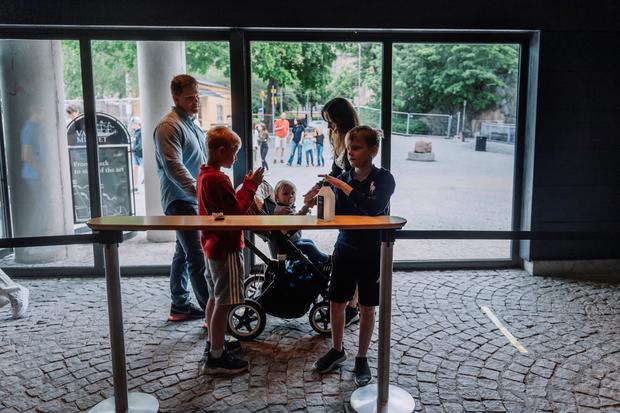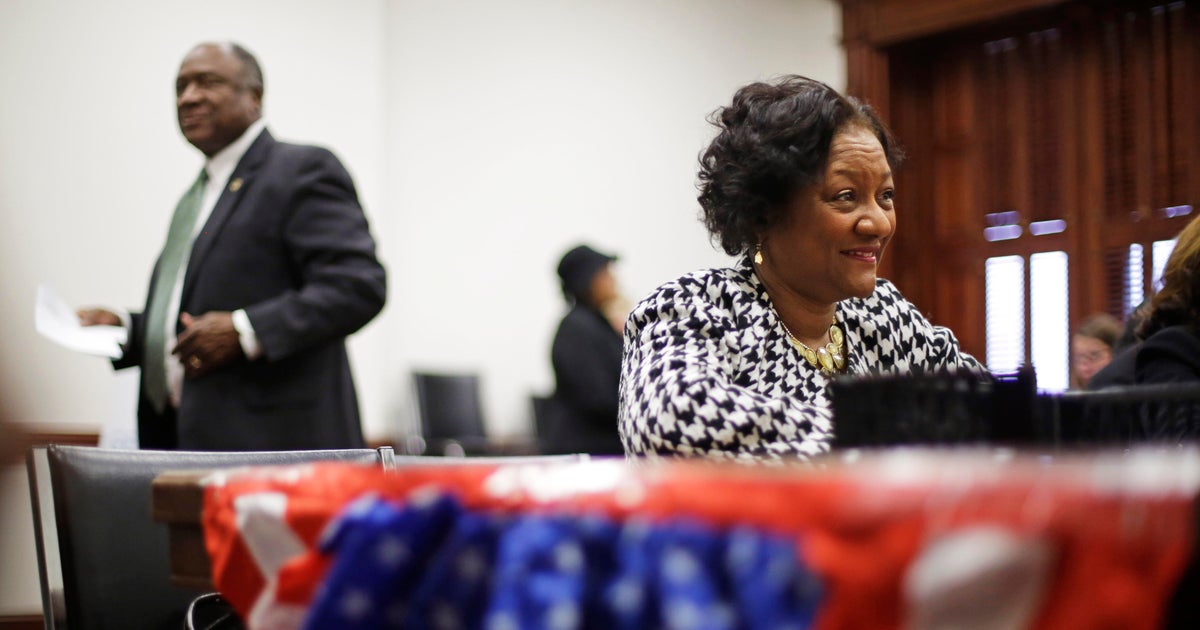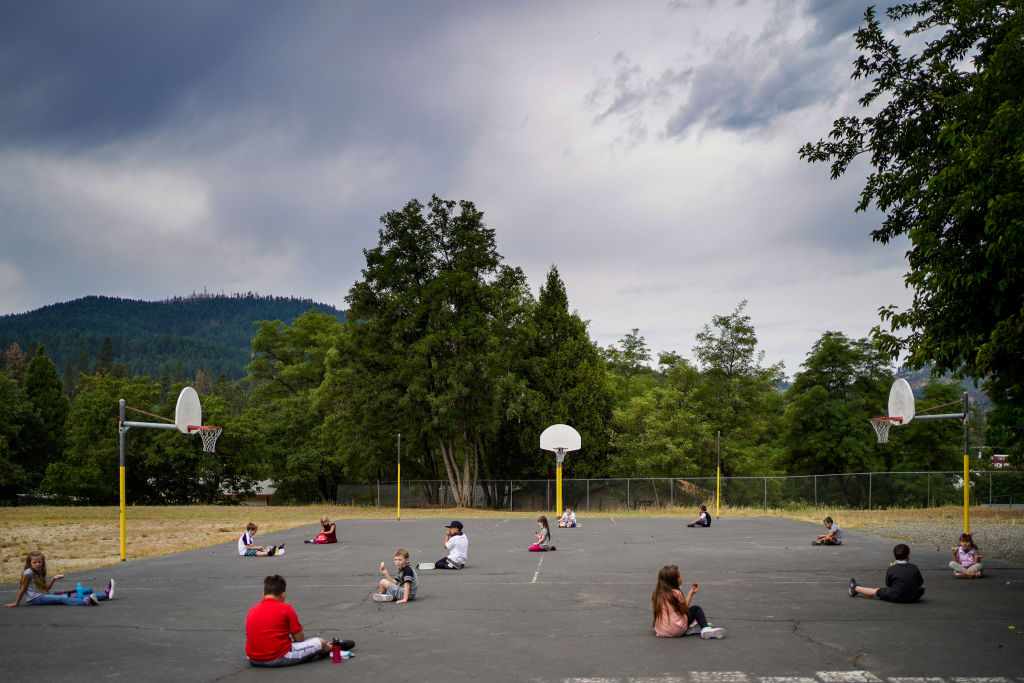Sweden becomes an example of how not to handle COVID-19
Stockholm — As many nations introduced strict lockdowns as the coronavirus pandemic took hold earlier this year, Sweden took a totally different approach. You might call it lockdown-lite.
The public health authorities banned gatherings of over 50 people, closed high schools and universities, and advised people to maintain a safe distance. But stores and restaurants have remained open throughout the pandemic, as have elementary and middle schools.
The Swedish authorities argued this was a sustainable plan, one the public would back even if the measures had to stay in place for many months. In the long term, they believed it would protect both lives and the economy.
But the death toll from Sweden's outbreak is now the fifth-worst in the world, per capita. The country's mortality rate from the coronavirus is now 30% higher than that of the United States when adjusted for population size.
CBS News correspondent Elizabeth Palmer went to Stockholm and found that, despite the worrying statistics, most Swedes still back the public health agency's approach.
"I think the people are taking their responsibility to social distance, so I am fine," said Stockholm resident Mia Soderberg. "I am glad… because I think people are in better shape mentally, because we've been able to go out."
The economy, however, has still taken a serious hit, and many countries now see Sweden as a cautionary tale. Its closest neighbors, Denmark and Norway, have put strict limitations on travelers coming from Sweden.
Stockholm residents who spoke to Palmer on the streets said they were heeding government guidelines, trying to social distance and work from home. But face coverings are still a rarity. Taking a ride on Stockholm's subway, Palmer was the only one on the train wearing a mask.
Sweden's government now admits that procedures in care homes at the outbreak of the pandemic were inadequate. As far Helen Gluckman is concerned, that's an understatement. Her 80-year-old father Jan died in a home in April.
Near the end, "he was squeezing my hand when I was talking to him," she told CBS News. "I think he heard me."
When Jan tested positive for COVID-19, the care home where he lived didn't send him to the hospital. Staff stopped monitoring his oxygen levels and gave him morphine. He died within days.
"They didn't have any oxygen in the home, so there was nothing that they could do, or were doing, so I think it was better [for them] not knowing how bad his condition was," his daughter said.
"They just gave him morphine, which kills a person after a while," Gluckman said, adding that if she had known at the time that "morphine will kill you, because it takes your breathing away," she never would have accepted it.
Asked how health care professionals could take such decisions — essentially making a call not to treat a patient — Gluckman said authorities in Stockholm seemed to decide early on that they weren't going to treat the elderly, perhaps to keep ICU beds available.
She said without hesitation that she's "lost faith" in both the government's and the public health authorities' handling of the epidemic.
With the onset of summer, Sweden's outbreak finally slowed down. From a peak of more than 100 deaths per day, the country is now reporting daily death tolls in the low teens.
But in a couple months, when the short northern summer ends, people will head back indoors, where the virus could easily explode again.
Swedish scientists have called for stricter, more data-driven measures.
National public health director Karin Tegmark Wisell told Palmer, however, that to avoid a potential new surge in infections in the autumn, Swedish officials would "keep up their current recommendations" and continue to study evolving research.
Palmer asked Soderberg, the Stockholm resident out shopping, if she was comfortable with that.
"I do trust them" she said. "Yes."
"Even now that you see the death rate?" Palmer asked. "It sounds a bit irrational if you'll forgive my saying so."
"Yes," said Soderberg, "but you also have to look at where the mortality statistics come from," she added, in an apparent reference to the fact that at least half the deaths occurred in care homes.
She believes Swedes are trying to help ease the crisis by obeying government guidance.
"That's the way we have chosen to handle it," she said. "We have made big differences in how we live."
At the moment, there's no indication that the Swedish authorities about to change tack.
At a press conference, Palmer asked one of Sweden's public health directors, Karin Tegmark Wissell, what the plan was to avoid a second spike this fall.
"The measures we have taken have been focused on a long term approach," she said. "We will keep up our [current] recommendations and restrictions… and keep on studying the new literature."
Dr. Hokan Kalzen treats COVID patients in the ICU ward of Stockholm's Sodertatlje Hospital. From 77 cases at the peak of the pandemic, he is relieved there are now only four left on the ward.
Asked why so many Swedes still have faith in the authorities' light touch when the numbers look so bad on paper, he suggested they may be proven right in the end.
"When countries that had a complete lockdown and low numbers try to open up, many of them, they face outbreaks, and they will be terrified for a long, long time."
Also, Swedes have deep-rooted loyalty to their government.
"Maybe it's because we feel we get more for our taxes than people do in other countries," he said. "So we still have a little faith left."
But Sweden's stay-the-course approach alarms Nele Brusselaers, an epidemiologist at the world renowned Karolinska Institute medical research university in Stockholm.
"If there is one country in Europe where there will be a second peak, it will be most likely Sweden, because they're still not doing that much to really stop it," she said.
Last month, Sweden's prime minister announced an inquiry into the government's handling of the coronavirus outbreak.
Recent polls have shown public confidence is dropping. In one poll, conducted by the Swedish Civil Contingencies Agency on July 6, 45% of those surveyed said they had little trust in the authorities' handling of the coronavirus epidemic






